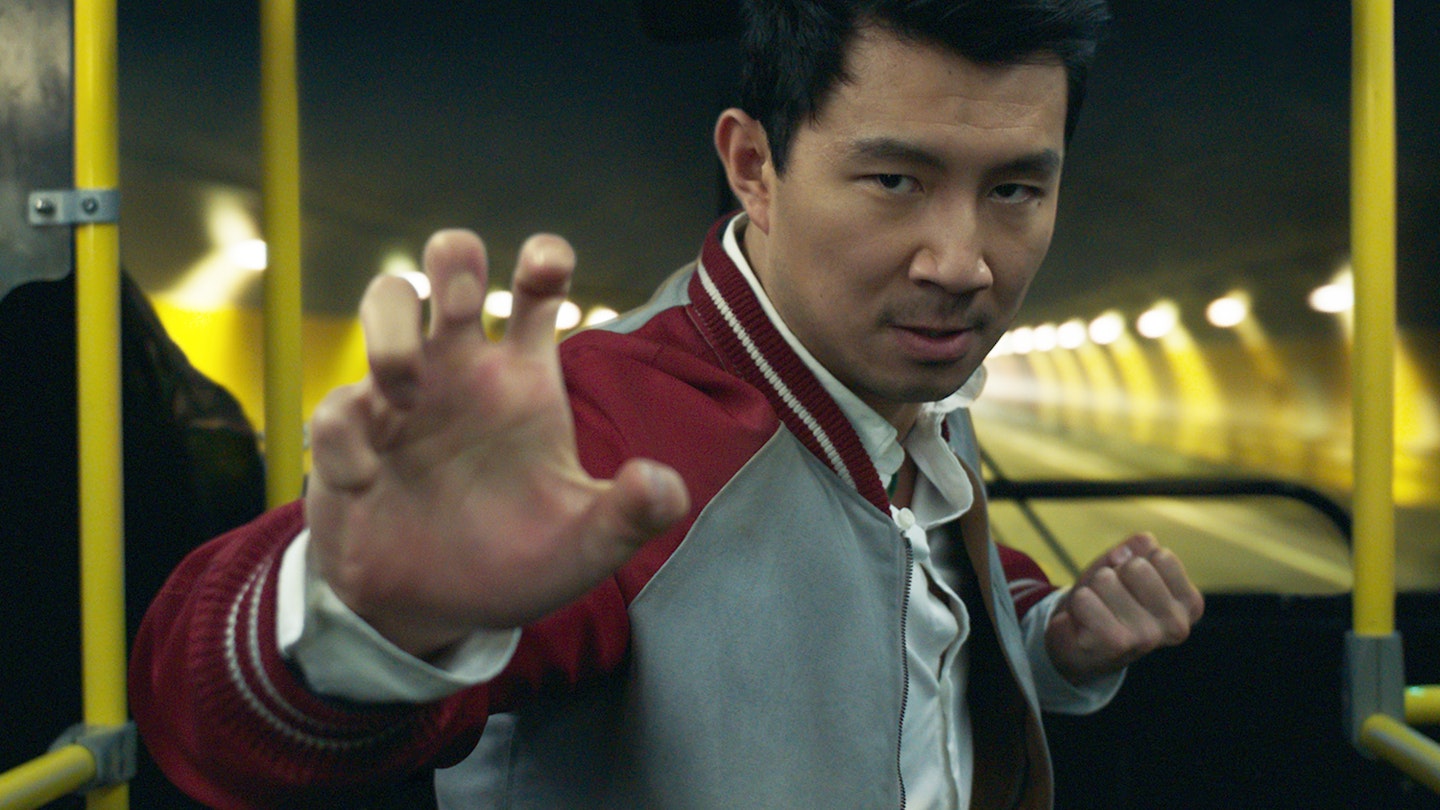Warning: contains spoilers for Shang-Chi And The Legend Of The Ten Rings… obviously.
If you’ve seen Shang-Chi And The Legend Of The Ten Rings, you’ll know it’s another thrilling Marvel Studios origin story for a character occupying his very own place in the ever-expanding MCU. And if you’ve not seen Shang-Chi? Well, you’ll want to exit this article, pronto – because below, we have director Destin Daniel Cretton and writer Dave Callaham delving deep into the film’s biggest secrets, surprises, and smackdowns, as heard on the Shang-Chi episode of the Empire Spoiler Special Podcast.
Still here? Good. Then you’ll want to know that the conversations touch on the glorious return of Sir Ben Kingsley’s Trevor Slattery, both credits sequences, that incredible bus brawl, Katy’s heroic final-act moment, the complicated emotional confrontation between Shang-Chi and Wenwu, and much more. You can hear the full interviews now on the Empire Spoiler Special Podcast here – and check out some of the highlights below.
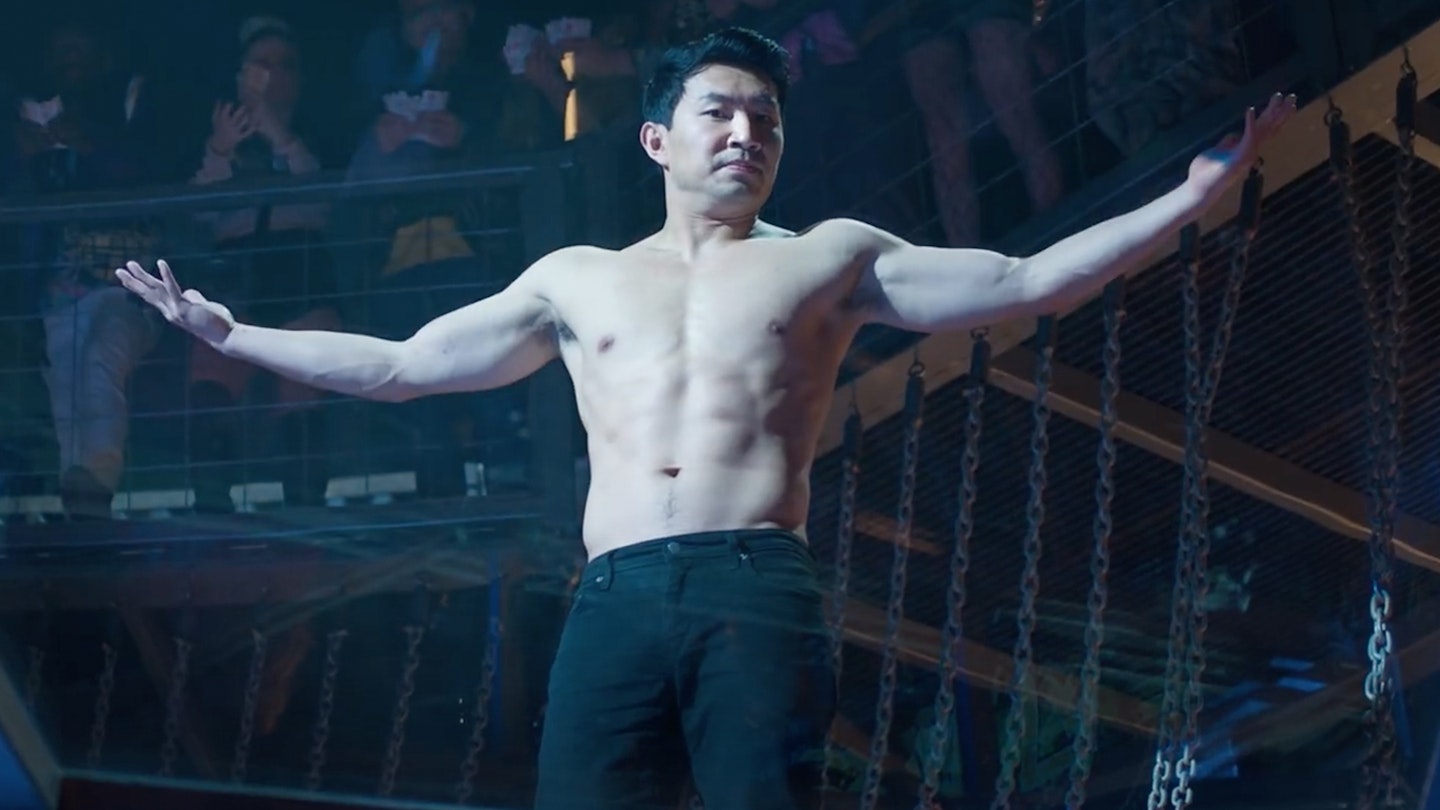
———
Destin Daniel Cretton (Director, Co-Writer)
EMPIRE: At what point did you know Trevor Slattery wasn't just going to be a one-scene-and-done cameo?
DESTIN DANIEL CRETTON: We knew we needed Trevor to be a part of this story in order to really tell the full context of this mysterious Mandarin character that's been floating around. At one point we were toying with the idea of Trevor's voice being the opening narration of the movie. We went through a lot of ideas. But the final product came out of Sir Ben coming on board and reading what we had written up until that point about the character. He was very enthusiastic about telling the next chapter in Trevor's life, when he has kind of turned things around and is on a new straight and narrow, sober kick.
We have several different narrators during the film, and there are lots of flashbacks – is that idea of storytelling and narration something that you wanted to play with?
It was actually something that we found in the edit room. We initially played around quite a bit with the positioning of where those flashbacks would be. We wanted the flashbacks to all be connected to memories of each of our characters, and to see how they are affecting those characters. At its core, this movie is about Shang-Chi learning how to remember things, how to face them, how to look inside of himself and redefine these painful memories in a way that can actually give him strength. How it ended up was not in the first edit of the movie. We shot it in order, with everything upfront, so we had this really long first act that told everything. But there was an exploration over the course of months finding the right placement for each of those flashbacks.
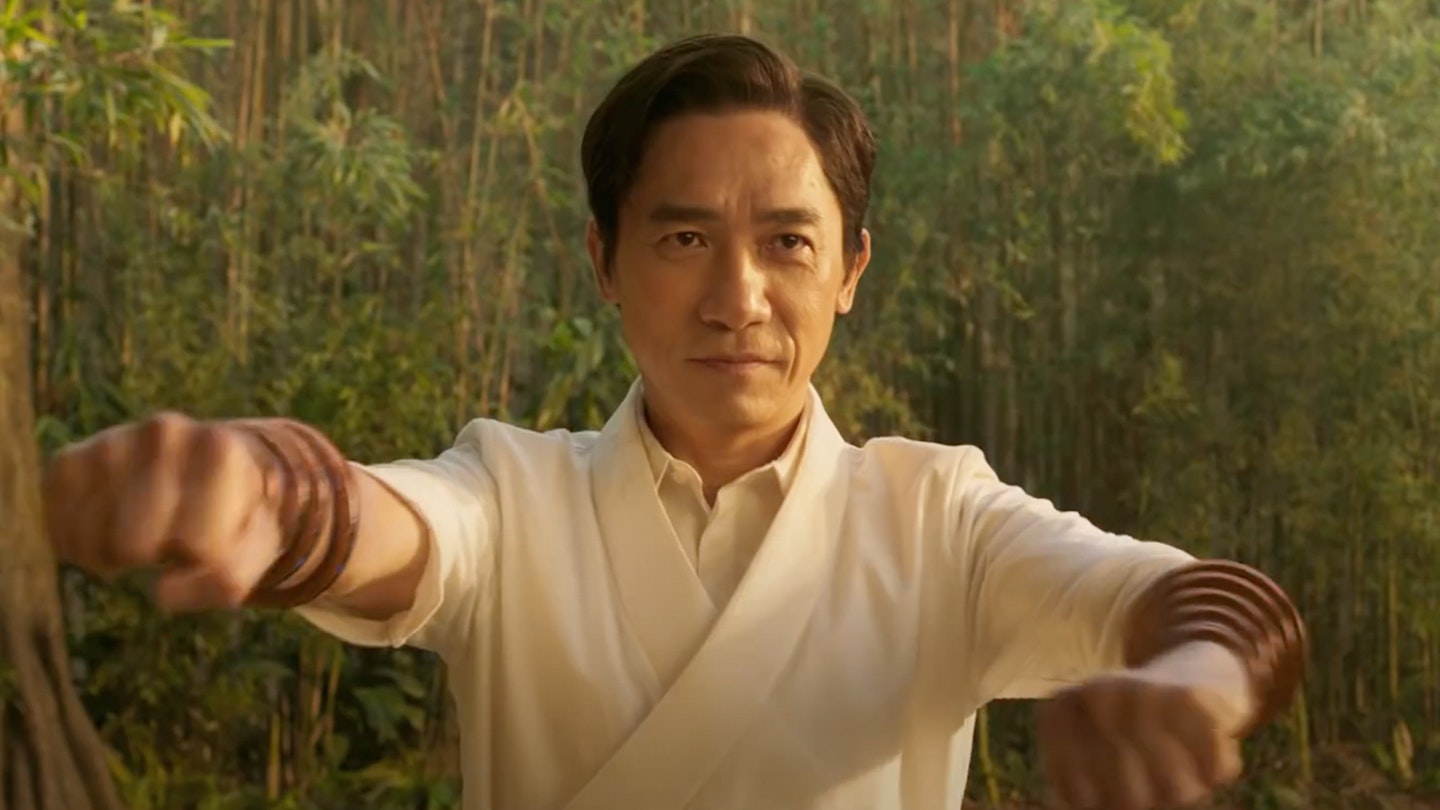
Wenwu isn’t just a moustache twirling, two-dimensional bad guy. There’s a really interesting exploration of grief. Can you talk about that?
We knew from the very beginning that Wenwu was our biggest challenge, because he could be the easiest character to just rely on a stereotype, the villain character just being a bad dude. But we also knew that we wouldn't be able to get an actor like Tony Leung to sign on with that. He doesn’t need a giant Marvel movie. He’s not enticed by money, or fame; he's only enticed by material, and wanting to play something he hasn't played before, or exploring emotions he hasn't really explored before. So we had to create a character that was worthy of Tony, which was a big challenge. I loved watching him explore the character’s trajectory over the course of the movie. A lot of it was filmed in sequential order, so we can see him grow over time and explore these emotions, go through the highs of Wenwu’s life and then through the tragic loss, and watch him dip further and further into madness.
There was this moment when I was talking to Tony – I asked him if he thought that Wenwu truly loves his children. I feel like it's clear that Wenwu loves his wife, but I asked him what his opinion was on Wenwu and his love for his kids. And Tony immediately said ‘Yes, emphatically, he does love his children. But his problem is, he has no idea how. He’s not a man who is incapable of love. He's a man who is broken, and doesn’t know how to show it correctly.’
The last shot of the movie shows that Xialing is now in charge of everything. She's not shutting down the Ten Rings – she's taking over for herself.
When that idea came up in our writing process it was really exciting, because it's pretty hard not to root for Xialing during this whole story. She's the ultimate underdog, and you see so much potential in her. There's a moment in the movie when she tells Katy, ‘If my father won't let me into his empire, I'm going to start my own’. That's what you see her struggling to do throughout the entire movie, is find her place.
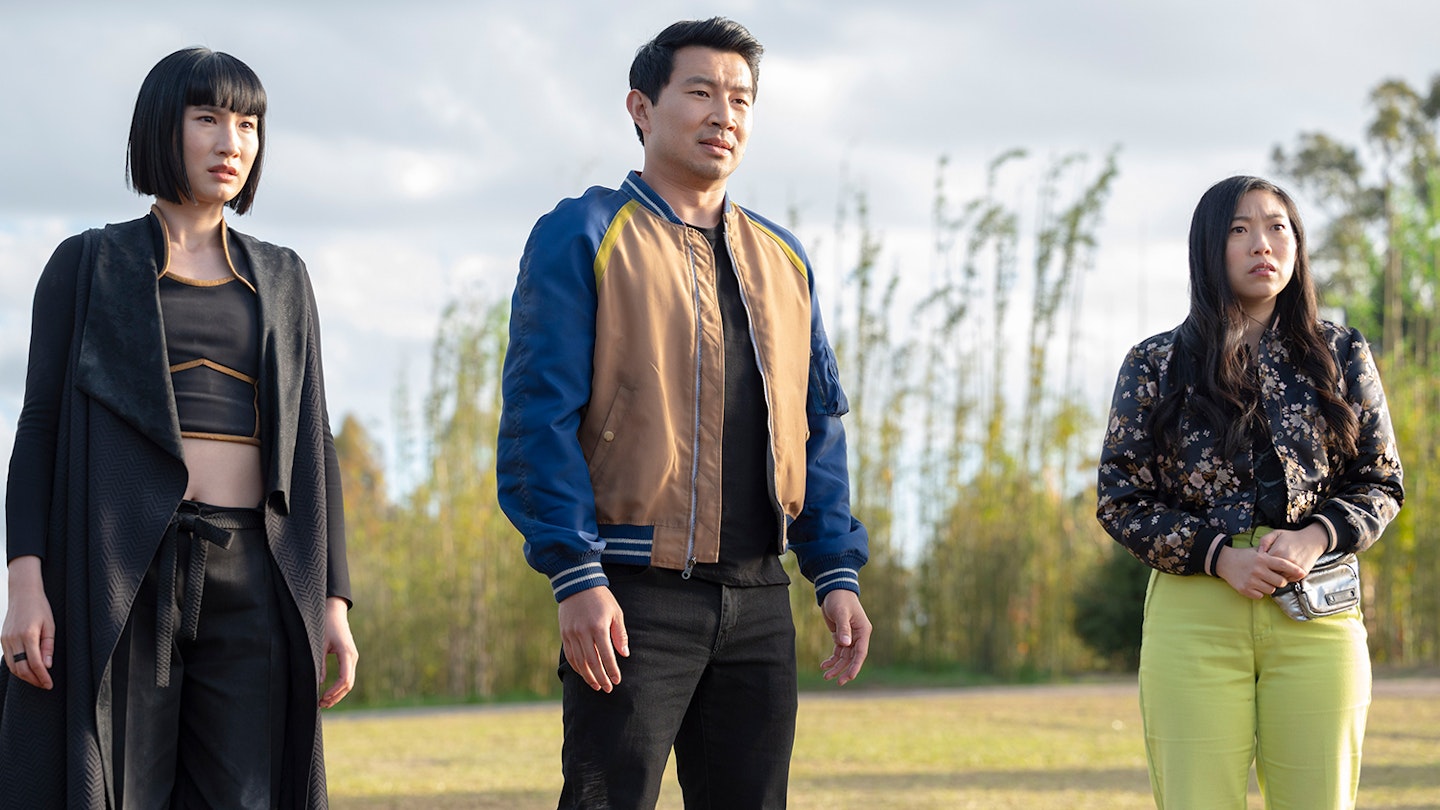
You have these two giant dragon beasts fighting in the sky at the end of the movie, and as a director, you embrace the challenge of having this great visual, but also trying to keep your heroes grounded within that.
That right there is the challenge of our third act, that we were constantly battling. I was working really closely with Chris Townsend, our VFX supervisor, and Weta, who did most of our third act VFX, and there is no way we could have landed on any type of coherent story without that tight collaboration.
I love the hugeness of that final act and how almost ridiculously huge it gets, because to me, it is so closely tied to the emotional journey of what these characters are feeling inside. I love having the Marvel canvas to do that, and to see how you can have a giant creature-on-creature battle, and in the midst of it, have a brother just simply tell his sister, ‘I'm not going to leave you again.’ To have that intimate, emotional beat plopped right in the middle of a giant spectacle is pretty fun.
That final shot [in the bus fight] was our nod to _Oldboy_. – Destin Daniel Cretton
Brad Allan was such a huge part of crafting the fight sequences, and what a terrible loss. Each fight is different, and says something different about the character as well. The opening fight between Wenwu and Ying Li is so striking.
That fight-slash-dance was one of the first things that Brad and his team choreographed, and it got us so excited at what this movie could be, because it was the first fight that you could clearly describe as emotional and elegant and all these adjectives that you just don't get to use when you talk about fight scenes like that. It was very exciting.
And there’s the bus fight – the escalation of it, and how it culminates in that wonderful shot from outside the bus, tracking Shang-Chi as he goes through the bad guys. Can you talk about your approach to that?
That final shot was our nod to Oldboy, which is one of my favourite moments in cinema. The bus fight was something that was a real back and forth between the stunt team and us writing, and making sure that every 10-15 seconds, there was a plot point that was upping the stakes. The idea of the bus fight was actually initially something I pitched to get this job. It was the first sequence we shot, and it took us about a month. That sequence was like my introduction to action filmmaking. I was just thrown into the ring with arguably the biggest sequence of our movie, and it was a lot of fun.
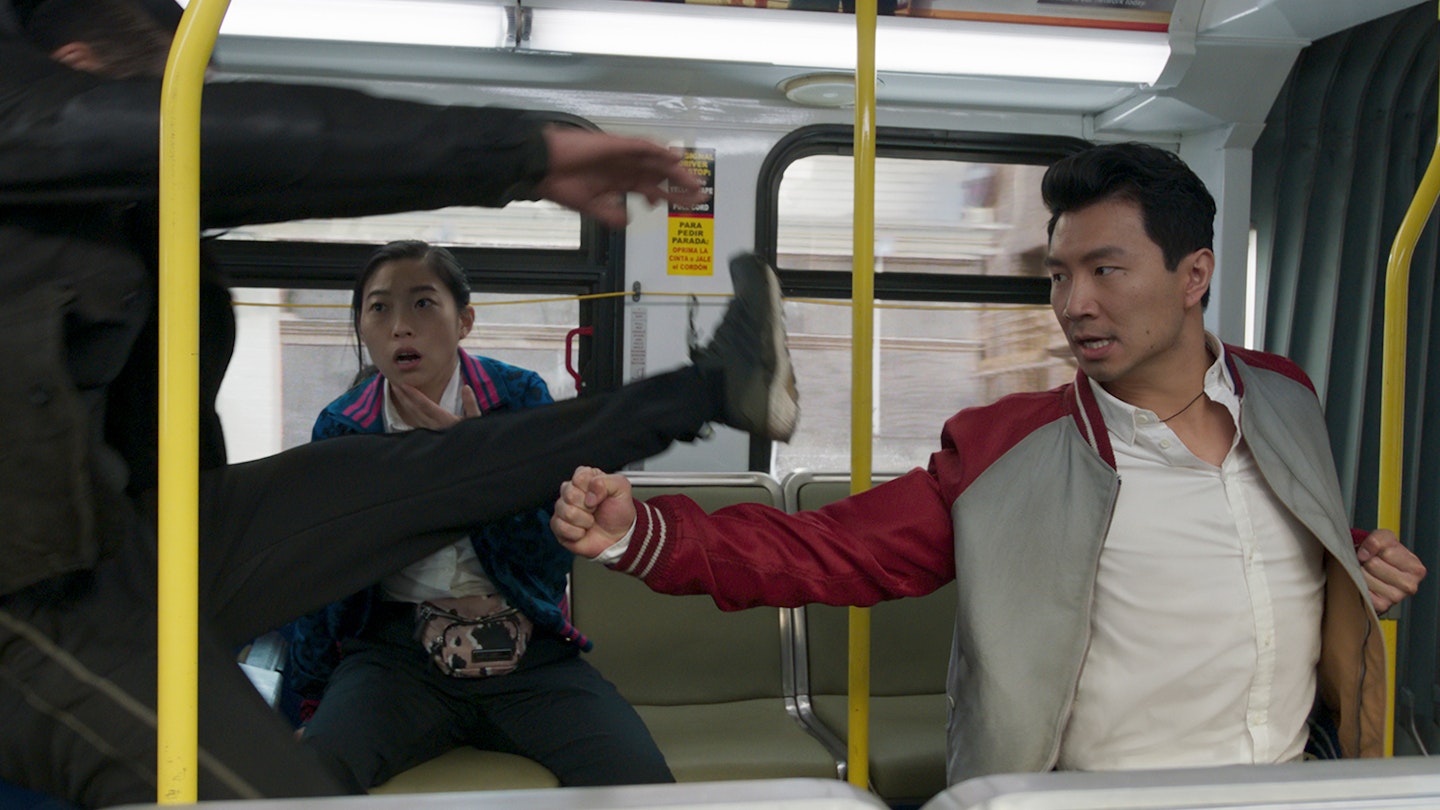
Was that sting – with Wong, Carol Danvers, and Bruce Banner, not the Hulk – in the script? How do you decide who was going to be in that scene?
Yes, we had a version of this fairly early on, but the post credit scenes go through so many renditions, because the MCU is always changing. So as other things are happening in other shows, it informs which characters would make sense to be here at this specific time in our movie. Some people do not make sense because they're busy doing whatever else they're doing in the MCU, so yes, we went through a lot of renditions to land where we are. But there is a very clear reason why we landed there, and I’m very excited to explore it one day.
–––
Dave Callaham (Co-Writer)
EMPIRE: The bus fight has such a great impact. Was it intentional to have that as the first time we get a sense of Shang-Chi’s fighting prowess?
DAVE CALLAHAM: In this particular case, what you're looking at is our first introduction to Shang-Chi as an action hero. Shang-Chi has been presented thus far as just your average everyday guy. Especially important is the fact that Katy knows him as a valet parker who probably has never done martial arts a day in his life. For this to be the introduction to the audience – but also to Katy – of what this guy’s secret life is, it needed to be spectacular. It needs to blow your socks off. It’s the first time you've ever seen Shang-Chi on screen kicking ass, and it needs to really open Katy's eyes to the reality of, if he's capable of this much, what else is he hiding from me? So storytelling wise it needed to be big, and visually it needed to be big.
Destin came in with the bus fight idea on day one, and it was just one of the many great ideas he already had in his pocket. He recognised that with that kind of sequence, you could just keep ratcheting up the tension. It's like ‘Okay, we're fighting on a bus, and now there's a guy with a razor for an arm, and now the accordion part of the bus is sliced open, and now the brakes are gone’ – you just continue to add on and add on. That to me is really high-end action filmmaking.
Awkwafina is incredible in this film – she’s so watchable, and has so much chemistry with Simu. How difficult was it to keep Katy present in all of the action sequences?
Any time that you're dealing with an action set piece with more than one central character, you're always asking yourself, where is everybody else? Why are they here? What are they doing? The bus sequence was not really hard in terms of keeping Katy active because again, that sequence is designed to be from her perspective. She is witnessing this insane transformation in her best friend right before her eyes. And so for the first half of that sequence, her job is really just a stand there with her eyes wide going, ‘What the fuck?’ And then we throw her into the driver's seat, and she gets to do that.
The scaffolding fight was a sequence where we had to really work hard to make sure she was involved in a real way. We knew that she would be endangered quite a bit during that sequence, but at that point Xialing’s also entered the picture, and her and Shang-Chi are really butting heads throughout that. They're working as a team, but also sniping at one another. That was one of the main stories of that fight, and so when you're servicing those things, then making sure Katy was also present can also get challenging.
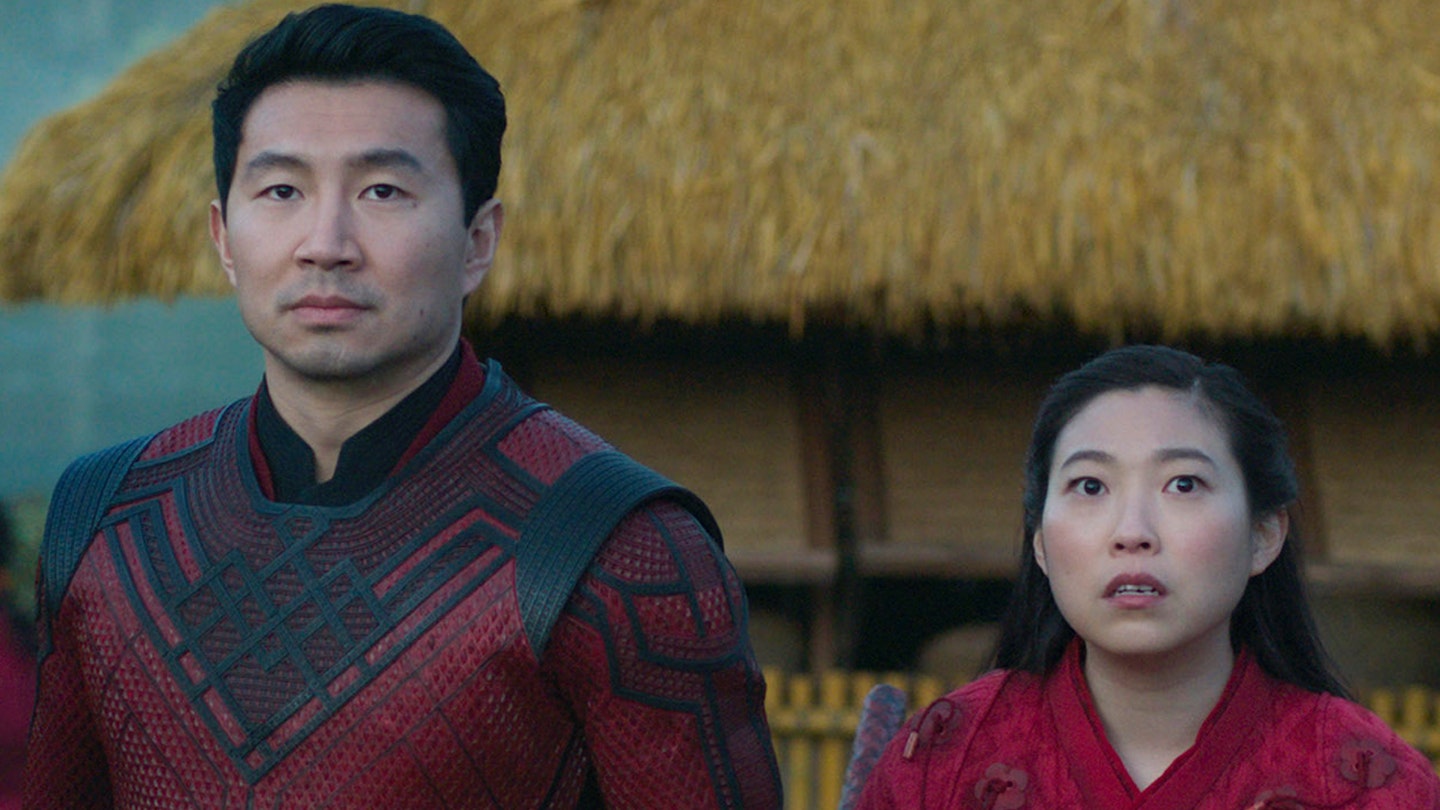
She fires the crucial arrow in the third act. Where did that idea come from?
If you step back from the movie and look at all of the characters arcs, she is the one who is talking about how she doesn't know what the one thing she's meant to do is. She's a bit aimless, she's kind of a slacker. At the beginning of the movie, she plays it off with her friends – she knows it about herself, but she's not that concerned. You hear it again with her mom, it comes up with Trevor in the car, and there are multiple conversations that relate to finding your way once she gets to Ta Lo. So it made a lot of sense to pay her arc off in a way where she would finally have her eyes open to her value to the world, and to discover what it is that she's here to do, at least in this moment in time.
In Shang-Chi’s final fight, it’s not about suddenly throwing a hundred bad guys at him – it’s very much about him and his dad. How did you decide to focus on that?
That always had to be the progression for this movie. From the moment Destin came in, or even before that, there was going to be a degree of father-son trauma. In the original Shang-Chi story – though we do jettison quite a bit of that – he was always the son of a monstrous person. Once we settled in on the story we were telling, it became clear that there's no greater monster or army that he could face than his own father. Nothing is going to scare him or intimidate him or cause the anxiety in his heart that his father causes for him – because of the emotional trauma that he's been through at his hands, but also because of the love that he still inherently has for his father. An army of 100 people, in my mind, would have not been nearly the match for Shang-Chi that this single man is, because of that trauma and because of what it means.
I needed this movie to in some way be about Asian-ness. I can't have a movie where you could sub out the main character with a white person. – Dave Callaham
In a lot of other movies, the death of Wenwu would have been the end of the film. Here, that fight leads to the actual final fight. Was that always the case?
Yeah, that was always generally the structure, because in defeating Wenwu, Shang-Chi fully came into his own and has emotionally accepted all of these parts of himself. He ends up with the rings on his person, which is really nice because Wenwu sees in that moment that that's where they should go. But if we stopped there, you wouldn't know the degree to which Shang-Chi had self-actualised. You would understand that he had accomplished enough to beat his father, but I think it was always important to us that you then see him level up in a huge way. Because at the end of the day, we are still operating inside of the MCU, and we need to end this movie with an understanding that this dude can go off into the greater universe and stand alongside any of these other heroes, and not just be the kung fu guy. He’s going to be able to do incredible things and so, we just needed to see him ride a dragon!
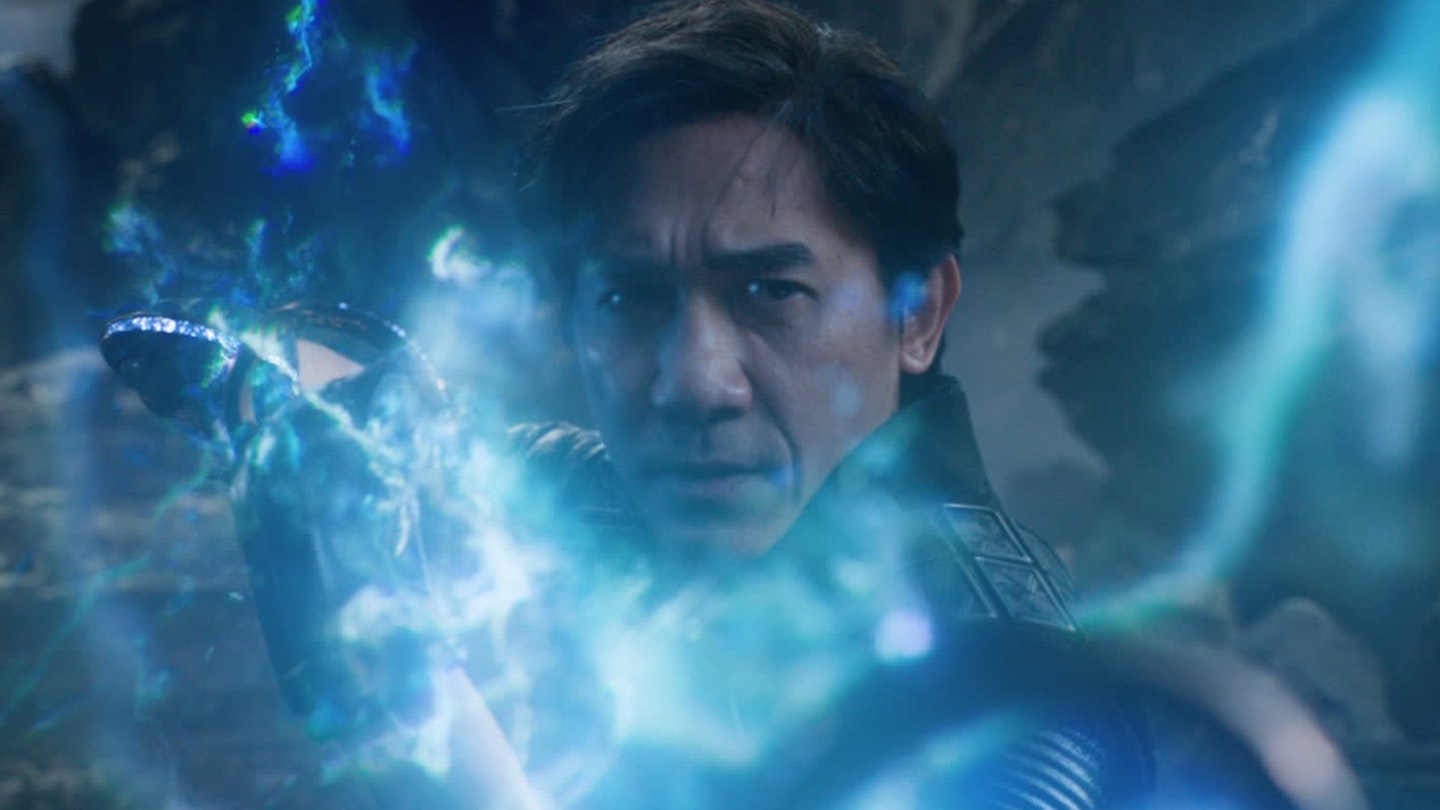
The moment where Shang-Chi is recounting meeting Katy for the first time and talks about being picked on is one of the few allusions to racism in the film. Was that something you guys talked about, in terms of how much to go into that?
Yeah, that was a constant conversation for us. It was something that I think was really necessary to address at some point in the movie. I would also say that the conversation at dinner at the compound when Wenwu is describing to Katy the importance of names, and how some people who didn't understand him called him ‘The Mandarin’, is also about a very subtle form of racism. But yeah, it's a constant balance. Because it's a Marvel movie, we're not trying to be heavy, but we want to talk about real things.
If you look at a movie like Black Panther, there's a lot of real world stuff happening in that movie: real conversations, real perspective, really interesting ideas. But it's also a Marvel movie, and it's fun and that stuff doesn't weigh the movie down. That was the same conversation we were having – how do we reflect this conversation? Especially at this moment in time, because the spring of 2021 was a really challenging time for Asian Americans and for Asians generally around the world. There were a lot of acts of violence and that was the first time I think there was a lot of attention really being paid to the various forms of constant racism that Asian Americans can feel. So although we had already shot the movie, knowing that we were about to do reshoots, we said let’s revisit the conversations we've already had about how much of this stuff we want in the movie. Do we want more? Or is it less appropriate now? How do we not be the knee jerk response? It was a constant conversation about how to best handle that aspect of our story, because it is a part of the story.
What was the one thing that meant the most to you personally, that you managed to get into the film?
My answer to this was always that I just needed this movie to in some way be about Asian-ness. I can't have a movie where you could sub out the main character with a white person, and the story wouldn't change at all. You know what I mean? There have been movies in the past that, I think, proclaim to be diverse or representative of an underrepresented group on screen, but when you look at the way that those stories are structured, sometimes they're just superhero stories with somebody put front and centre that doesn't actually have anything to do with the culture. So it was important to me that this could only ever be a movie about an Asian superhero.
If we're gonna make a movie with Asian faces and with Asian people behind the screen, it's really important that it reflects some version of the very vast expanse of Asian experience, which can't be summarised in any one person or any one storyline. But I just knew that if we could get enough of that feeling in there, and the story felt right, then that would be achieved. And I think it was achieved in all of these small moments in addition to the larger story, like at Katy's house and those small comments between her mom, or Jon Jon, Ronnie Chieng’s character, saying that he can speak ‘ABC’. There's these little moments that a lot of the Asian audience members have really been responding to and make them feel seen, and that to me means mission accomplished.
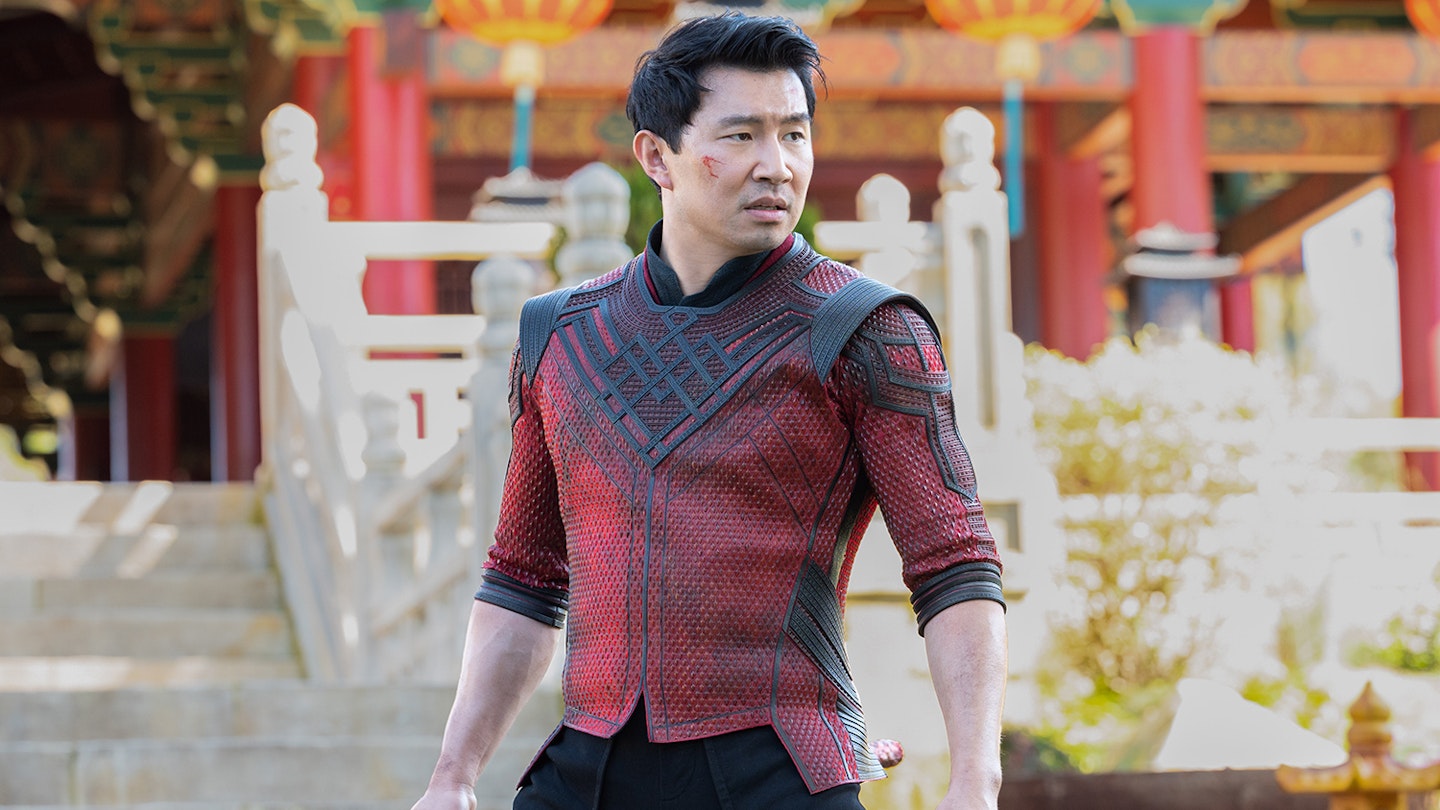
Shang-Chi And The Legend Of The Ten Rings is in UK cinemas now. Listen to the full Destin Daniel Cretton and Dave Callaham interviews on the Empire Spoiler Special Podcast – read more here on how to listen.
